Measure for Measure is currently studied in VCE English under Area of Study 1 - Text Response. For a detailed guide on Text Response, check out our Ultimate Guide to VCE Text Response.
INTRODUCTION
Ahh William Shakespeare. That guy. You’re probably thinking, “Great. More fancy language. Hasn’t he been dead for centuries? Why does he keep popping up in our English curriculum?”
At least, that’s how I reacted.
Shakespeare is actually a huge figure in the history of the English language, and really no high school English curriculum is complete without a mandatory dose of him. In fact, the current VCAA study design demands that one of his texts must be on the text list. What a legend.
Shakespeare doesn’t only influence our world in the classroom. The Bard coined many words and phrases that we use today. We can thank this playwright for “be -all, end-all”, “good riddance”, and my personal favourite, “swagger”.

The Bard’s play “Measure for Measure” was first performed in 1604; over 400 years ago. So why do we still study his works today? In fact, the ideas and themes that are evoked in his plays are universal and timeless; pertinent to his contemporary counterparts, as well as today’s audience. Shakespeare’s plays are like soup (bear with me, this is going somewhere). One could say the playwright is a master chef; he mixes tales of the human condition and experience and asks us to question people and ideas. Everyone, regardless of their time, will gobble up the story.
So, what is this soup- I mean ‘Measure for Measure’ about? The play is known as a “problem play” and/or “tragicomedy”. That’s right, it’s both a tragedy and a comedy. Dire trials and tribulations are intertwined with humorous gags and jokesters. I guess Shakespeare couldn’t choose just one.
‘Measure for Measure’ is also a problem play. Critic W.W Lawrence defined a problem play as one in which "a perplexing and distressing complication in human life is presented in a spirit of high seriousness ... the theme is handled so as to arouse not merely interest or excitement, or pity or amusement, but to probe the complicated interrelations of character and action, in a situation admitting of different ethical interpretations".
Ok, crazy, but he also said that "the 'problem' is not like one in mathematics, to which there is a single true solution, but is one of conduct, as to which there are no fixed and immutable laws. Often it cannot be reduced to any formula, any one question, since human life is too complex to be so neatly simplified.”
In short, a problem play presents lots of complications and issues that are open to different ethical interpretations. As in “Measure for Measure”, the “problem(s)” is/are not always solved.
So, what actually happens in this play that is problematic? What are our ingredients in this problem soup?
P(L)OT SUMMARY
Get it? Cause soup is cooked in a pot. Sorry.
The Duke of Vienna appoints his deputy, Angelo, as the temporary leader. This Duke then pretends to leave town but instead dresses up as a friar to observe what happens in his absence. Angelo, strict and unwavering in his dedication to following the rules, decides to rid Vienna of all the unlawful sexual activity; including shutting down the brothels. Prostitutes like Mistress Overdone (pun alert) and her pimp Pompey are poised to lose their livelihoods. Laws against this activity exist, but they’ve gotten lax over the years. Angelo, a stickler for the rules, has Claudio arrested because young Claudio has gotten his engaged wife-to-be (Juliet) pregnant before they were officially married. Claudio is to be executed.
The virtuous Isabella, Claudio’s sister, is poised to enter a nunnery. Upon hearing of her brother’s arrest and sentence, she goes to Angelo to beg him for mercy. He hypocritically, in an absolutely dog move, propositions her, saying he’ll pardon her brother if she sleeps with him (with Angelo, not Claudio). She immediately refuses, being the religious and chaste woman that she is. At first Claudio is upset because he wants to live, but then he calms down and accepts death.
Luckily, the Duke (secretly dressed as a friar) helps in their sticky situation. He brews up a plan; Angelo’s former flame Mariana was engaged to him, but he broke off their engagement after she lost her dowry in a shipwreck. The Friar (Duke) plans to have Isabella agree to sleep with Angelo, but then send Mariana in her place. In theory, Angelo would pardon Claudio and be forced to marry Mariana by law.
The old switcheroo goes off without a hitch. But come morning, Angelo refuses to pardon Claudio, fearing he will seek revenge. The Duke, in collaboration with the Provost, send Angelo the head of a dead pirate (Ragozine) who died of natural causes. They claim that it’s Claudio’s head, and Angelo is satisfied, thinking him to be dead. Isabella is also told that her brother is dead and is encouraged by the Friar (Duke) to complain about Angelo to the Duke, who is returning home.
The Duke makes a grand return to Vienna, saying he will hear any complaints immediately. Isabella tells her story, and the Duke feigns disbelief, despite having orchestrated the plan himself. In an act filled with more twists and turns than a Marvel movie, everything comes out; the Duke reveals he was a friar all along, Angelo is forced to confess, and Claudio is pardoned amongst other things. To top it all off, the Duke proposes to Isabella. Crazy!
HISTORICAL CONTEXT
It’s important to acknowledge what was going on in the world during the writing of a text. This may help give insight into why the author has included (or not included) some aspect of their work.
The Divine Right of Kings
This holy mandate states that a monarch derives his right to rule from the will of God and is not subject to earthly authority. The “king” or monarch is hence practically divine, and questioning his orders is also questioning god; blasphemy.
The Great Chain of Being/Class divides
This chain is a hierarchy of all life forms and matter in the following order:
- God
- Angels
- Kings & Royalty
- Nobles
- Commoners (Gentry, Merchants, Yeoman, Laborers)
- Slaves
- Animals
- Plants
- Non-living things
Hence, alongside The Divine Right of Kings, this ideal gave monarchs huge power over their subjects.
In early 1600s England, there was a defined social hierarchy and class system. Everyone had a place in the hierarchy, and there was little movement between the classes. Within each class, men were considered superior to women.
Shakespeare encourages us to ask a few questions of our supposedly holy leader and his actions. According to the Divine Right of Kings, the Duke is god’s right-hand man, and thus all his decisions are holy and backed by heaven. However, the Duke is pretty shady when he plots his bed-trick plan with Isabella and Mariana. Is this deceptive behavior still holy? Furthermore, is it not sacrilege to pretend to be a holy friar when one is not truly a holy man?
Moreover, when the Duke assigns Angelo as his deputy, would this transform Angelo into a divine ruler too? Could he be divine, considering his cruel rule and despicable request to Isabella?
Women
Women were considered subservient, lower class citizens then men. Alliances were forged between powerful families through arranged marriages of daughters. These girls may have received an education through tutors attending their homes (there were no schools for girls), but their endgame would be marriage, children and maintaining the home. Women and girls of a lower class did not receive any formal education but would have learned how to govern a household and become skilled in all housewifely duties. Impoverished and desperate women (Mistress Overdone) would turn to prostitution to stay alive.
Shakespeare perhaps highlights the struggle of women in his female characters; Isabella, Mistress Overdone, Juliet, and Kate Keepdown. Their futures appear bleak; Isabella is poised to enter a nunnery, Juliet’s husband (her only source of income and protection) is to be executed, while the brothels that facilitate Mistress Overdone and Kate Keepdown’s livelihoods are being closed down by Angelo.
Jacobean Audience
It was a tumultuous time when Shakespeare penned ‘Measure for Measure’ in 1604. A year earlier came the end of the 45 year long Elizabethan era and began the Jacobean era under the rule of King James. Since the late Queen Elizabeth had no direct heirs, King James of Scotland (a relative) took to the throne. Little was known by the English people of this foreign king.
Perhaps, as Shakespeare portrays the ruler in ‘Measure for Measure’ as clever and good-hearted, the Bard sought to appease the king by calming the people and encouraging them to trust in their new monarch.
The playwright characterizes the Duke as loving his people, but not enjoying being before their eyes and in the spotlight; much like King James, a quiet ruler who relished studying privately in his great library.
Playhouses and Brothels
The general public (commoners) paid a penny (could buy you a loaf of bread back in the day) to see Shakespeare’s plays, standing in the “yard”; on the ground, at eye-level of the stage. The rich (gentry) paid 2 pennies for seating in the galleries, often using cushions. The really rich (nobles) could watch the play from a chair set on the side of the stage itself. Shakespeare’s plays were performed at the Globe Theatre. Playhouses in Shakespeare's time were often close to brothels, both in terms of their physical locations in the suburbs and the way they were viewed by some of polite society. Thus, Shakespeare's relatively sympathetic portrayal of sexual deviance in ‘Measure for Measure’ may also constitute a defence of other suburban entertainment—his plays—and a way to humanize lower classes who patronized them.
WRITING ABOUT 'MEASURE FOR MEASURE'
If you’re lucky enough to study this interesting piece, the study design requires you to prepare “sustained analytical interpretations…discussing how features of the text create meaning and using textual evidence to support (your) reasons”. Basically, you’ll be given a topic; this topic could surround themes, characters, etc., and you must write analytically.
While you may choose to structure paragraphs around themes, ideas or characters, make sure to embed some historical context in there; that’ll show the examiner that you’ve done your research and have a thorough and deeper understanding of why Shakespeare put this or that in. Talking about authorial intent in your analytical essay leads to a more in-depth analysis.
“Shakespeare portrays characters that are flawed as a result of pre-destined circumstances. These characters, such as bawd Pompey and prostitute Mistress Overdone, lived in a time when there existed strong class divides, and movement within the social hierarchy was rare. As per the “Great Chain of Being”, a contemporary religious dogma, there was a hierarchy of all living things and matter, from lofty God and his angels down through the ranks of men and finally to animals and non-living things. In some cases, attempting to move up the social ranks was even considered a blasphemous rejection of the fate chosen by God.”
- embedding historical context (The Great Chain of Being) into a paragraph that discusses characters being flawed because of their circumstances
“Shakespeare offers characters such as Isabella and The Duke who strive for self-improvement through understanding and temperance. Perhaps the playwright suggests that perfection is very difficult if not impossible to attain, even for a ruler like the Duke and a pure soul like Isabella. However, he posits that it can be strived for and that perhaps this attempt to become better is what truly matters.”
- talking about authorial intent - what is Shakespeare trying to tell us?
Think of it as an opportunity to make your very own soup! Add some themes, stir in character analysis, sprinkle in some quotes and serve with historical context and authorial intent. Just like with a soup, there’s got be a good balance of all your ingredients; test out different structures during the year to find what works for you. (Just try not to overcook it, like I have done with this soup metaphor). If you need more help, How To Write a Standout Measure for Measure by William Shakespeare Essay is for you!

So, you see, there’s more to Shakespeare and ‘Measure for Measure’ than just fancy old language and iambic pentameter (What’s that? Well...). Keep on reading this blog post, where we’ll delve into themes, characters and symbols/motifs. In the meantime, let’s have a break. Grab a snack, a drink, and enjoy this tasty Shakespeare meme.
...Aaaaand we’re back!
Are you ready for part 2 of the Shakespeare train? Hop on board as we explore themes, characters and symbols/motifs.
THEMES
These are the major themes in ‘Measure for Measure’.
As you can see, the themes are interconnected. (Do you like the diagram? Made it myself :)) Why does this matter? Well, if you get an essay topic about Justice, for instance, you can also link it to Sexual and Gender Politics as well as Social Decay/Cohesion.
So, why is any one theme an important theme?
Which moments and characters are these themes related to?
Is there a link to historical context?
What are some key quotes?
What could be Shakespeare’s potential message? (Keep in mind that depending which pieces of evidence you look at, the Bard could be saying something different. In this piece, we’ll only discuss one or two authorial messages. The beauty of Shakespeare is that much is open to interpretation. You can interpret characters and ideas in so many different ways!)
Those are some great questions. Let’s explore some of the biggest themes...
Power and Authority
Power not only dictates the Viennese society, but we see it is a basis for moral corruption (I’m looking at you, Angelo!). The Duke is the leader of Vienna, ordained by God. He hands this power to his deputy Angelo, who misuses it in his request of Isabella. Now consider Isabella - she has power too, but a different kind… Also consider characters who have little to no power - Mistress Overdone, Pompey etc.
This theme could be linked to the Divine Right of Kings, the Great Chain of Being and Women.
- “O, it is excellent to have a giant’s strength, but it is tyrannous to use it like a giant” - Isabella when she pleads to Angelo to not kill her brother (Act 2, Scene 2, Line 130-132)
- “He who the sword of heaven will bear should be as holy as severe” - The Friar (Duke) to himself, not happy with Angelo’s dog move (Act 3, Scene 1, 538-539)
- “When maidens sue, men give like gods” - Lucio to Isabella, encouraging her to convince Angelo not to kill Claudio (Act 2, Scene 1, Line 87-88)
- "Hence we shall see, if power change purpose, what our seemers be.” - The Duke lowkey suggesting that once Angelo gets power, he’ll change into something evil (Act 1, Scene 4, Line 57)
- “Some rise by sin, and some by virtue fall.” - Escalus is sneakily hating on Angelo. This quote shows that power and authority often involve corruption (Act 2, Scene 1, Line 41)
Perhaps Shakespeare is suggesting that power is a dangerous weapon and that in the wrong hands, it could be deadly.
Morality and Sin
This is an interesting theme. What defines sin? For instance, if Isabella sleeps with Angelo she’s sinning before God. But if she doesn’t, then she’s letting her brother die, which is not good either. Bit of a pickle that one. Some characters to consider include Isabella, Angelo, The Duke, Claudio, Lucio, the Provost…. jeez just about everyone! So many of the characters take part in questionable deeds. Was it immoral for the Duke to pretend to be a holy friar? Is Claudio’s sin of impregnating Juliet really punishable by death if both parties were willing, and no one else has been punished for the same “crime”? Are Pompey and Mistress Overdone being immoral in being in the prostitution business, if it’s the only way to survive?
Deep stuff man. This can be linked back to class divides, women and the contemporary playhouses/brothels.
- “What sin you do to save a brother’s life, nature dispenses with the deed so far that it becomes a virtue” - Claudio begs his sister to sleep with Angelo (immoral, especially since she’s poised to enter a nunnery), saying that it’s for a good cause, and will actually be a virtue/good deed (Act 3, Scene 1, Line 146-148)
- “Might there not be a charity in sin to save this brother’s life?” - Angelo asking Isabella to sleep with him and trying to paint the act as a charitable deed (Act 2, Scene 4, Line 65-66)
- “I am a kind of burr, I shall stick” - Lucio, who represents sin and immorality in Vienna (we’ll talk more about this later in symbols/motifs) (Act 4, Scene 3, Line 182)
- “To bring you thus together ‘tis no sin, sith that the justice of your title to him doth flourish the deceit.” - The Friar (Duke), encouraging Isabella and Mariana to do the dodgy bed-trick and trick Angelo (Act 4, Scene 1, Line 79-81)
Perhaps Shakespeare tries to tell us that there is a fine line between something moral and something sinful. Maybe he’s asking, “who are we to judge?”, since we all do questionable things sometimes. Everyone from the almighty Duke to a lowly prostitute has committed potentially immoral acts. Perhaps audiences are encouraged to be more understanding of others, and their reasons for these deeds.
Justice
Mmm, this theme ties in nicely with just about all of the others. How does one define justice? The play explores this idea; does justice mean punishment? Or mercy? How do we balance the two to deliver the right punishment/lack thereof? Characters that dispense justice include The Duke, Angelo (although they have differing ideas of justice) and Isabella. Since Vienna is a religious place, consider the divine justice system (ie. a perfect, flawless system meted out by God) and the earthly one (ie. the flawed, human justice system). Laws exist in an attempt to ensure justice. But does it always work? Consider also the Old and New Testament ways of thinking - the former strict and punitive, while the latter is more measured and merciful (see symbols/motifs below for more info).
This theme can be linked to the Divine Right of Kings, Great Chain of Being, Women, and Jacobean Audience.
- “Justice, justice, justice, justice!” - (Wait, are you sure this quote is about justice?) Isabella pleads for (you guessed it) justice to the Duke (no longer dressed as a friar), thinking Angelo has, in fact, killed her brother (Act 5, Scene 1, Line 26)
- “The very mercy of the law cried out… ‘An Angelo for Claudio, death for death!’ Haste still pays haste, and leisure answers leisure, like doth quit like, and measure still for measure” - The Duke, explaining that it’s only fair that Angelo die for “killing” Claudio. (Act 5, Scene 1, Line 437-441)
- “liberty plucks justice by the nose” - The Duke tells Friar Thomas that the laws have slipped over the years, and the citizens of Vienna are not being punished for immoral deeds (prostitution, sex before marriage etc)
Perhaps Shakespeare says that since we humans are inevitably flawed, that any justice system created by us will too be imperfect. Who are we to decide the fates of our fellow man? Furthermore, the Bard may be encouraging us to be kind when dispensing justice, leaning more to mercy than punishment.
Sexual and Gender Politics
Who run the world? Gir- no it’s a bunch of men. This theme contributes to why ‘Measure for Measure’ is a problem play. The exploration of the female characters in this play are very interesting, and kind of sad. Of 20 named characters, only 5 are women. Together, their lines make up only 18% of the play. Yikes! There is a lot to unpack here. Our female characters are Isabella, Mariana, Mistress Overdone, Juliet, Francisca (a nun who speaks twice) and Kate Keepdown (who we never meet). Their situations: a maiden poised to enter a nunnery, a prostitute, a pregnant girl about to lose her husband, a nun, and another prostitute. Quite gloomy, isn't it? Meanwhile, the men are leaders (The Duke, deputy Angelo, and ancient lord Escalus) and gentlemen (Lucio, Claudio, and Froth). Over the course of the play, our female characters are put into worse situations by men. Their experiences are dictated by men. Consider taking a “feminist perspective” and exploring ‘Measure for Measure’ from a female point of view.
This theme links to the Great Chain of Being, Women and Playhouses/Brothels.
- “see how he goes about to abuse me!” - These are the last words we hear from Mistress Overdone, as she calls out Lucio for betraying her even though she kept secrets for him. All this happens while she’s being carted off to prison in only Act 3! What do you think Shakespeare is saying to us? (Act 3, Scene 1, Line 481)
- “Then was your sin of heavier kind than his” - The Friar (Duke) says to Juliet that she sinned more than Claudio, even though their sin was “mutually committed”. Even though they were both consenting, the woman is blamed more. Consider what would become of Juliet if Claudio was executed. She’d probably end up like Mistress Overdone... (Act 2, Scene 3, Line 31)
- “Who will believe thee, Isabel?” - Angelo says this after Isabella threatens to reveal his disgusting request. Ouch. It really goes to show how untrustworthy women are deemed. (Act 2, Scene 4, Line 163)
- “Why, you are nothing then: neither maid, widow, nor wife?” - The Duke says this to Mariana. Basically, he says a woman can only be those 3 things. Jeez. (Act 5, Scene 1, Line 196-197)
- “When maidens sue, men give like gods” - Lucio to Isabella, encouraging her to convince Angelo not to kill Claudio. So, perhaps women do have some power. But, it’s due to their sexuality; something evaluated by men. Peachy. (Act 2, Scene 1, Line 87-88)
Perhaps Shakespeare suggests that women are treated unfairly in society. Maybe he posits that women are afforded so few opportunities in a man’s world. The Bard potentially says that such sexual and gender politics do not create a cohesive and just society.
Mercy
This theme, again, connects to many others. It can link to all groups of people (The wealthy, the poor, women, criminals etc). Most of the mercy is dispensed at the end of the play when the Duke does his grand reveal. Characters who choose to mete out mercy over punishment include The Duke and Isabella. Also consider Angelo, who instead of choosing to spare Claudio, decides to kill him to uphold a law that hasn’t seen anyone punished for the same deed. We might think this is harsh, but it a legal and lawful decision.
Connect this idea with historical context, specifically Jacobean audience and playhouses/brothels.
- “I find an apt remission in myself” - Apt remission = ready forgiveness. The Duke says this after pardoning Angelo (Act 5, Scene 1, Line 539)
- “pray thee take this mercy to provide for better times to come” - The Duke pardons murderer Barnadine, asking him to use it to do better. How lovely! (Act 5, Scene 1, Line 525-526)
- “let us be keen (shrewd/sharp), and rather cut a little than fall and bruise to death” - Escalus says this to Angelo, who wants to enact all strict laws immediately. The ever-reliable Escalus advises Angelo to be lenient and merciful. (Act 2, Scene 1, Line 6-7)
- “Mercy is not itself that oft looks so, pardon is still the nurse of second woe” - Escalus says this, defending Angelo’s decision to punish Claudio. He suggests that sometimes being merciful can encourage further wrongdoing. (Act 2, Scene 1, Line 282-283”)
- “I show it (pity) most of all when I show justice” - Angelo says to Isabella that he is showing Claudio pity/mercy by punishing him. A firm believer in the law, Angelo thinks he’s doing the right thing and teaching Claudio a lesson by punishing him. (Act 2, Scene 2, Line 123)
Perhaps Shakespeare encourages us to look at mercy and punishment from different perspectives. Angelo believes he is punishing Claudio for his own good, and cleaning up Vienna of lechery too. Maybe we ought to be merciful in our opinion of the deputy. Nonetheless, the Bard shows that in the case of young Claudio, mercy and forgiveness is the right path to choose. Finally, consider why Shakespeare may have portrayed a merciful leader to his Jacobean audience. Maybe if he were to portray a leader as fair and merciful, the Jacobean audience would trust that their new king (a man similar in character to the Duke) could be kind and merciful too. Earning the favour of the king and writing a killer play? He’s killed two birds with one stone.
Human Frailty & Fallibility
I’ve encountered many essay topics about how humans are flawed and imperfect. It’s a pretty big theme in many texts, not just in our friend William Shakespeare’s. Human fallibility is to blame for a lot of the going-ons in ‘Measure for Measure’. Angelo takes the law too seriously, he gets heart eyes for Isabella and kills Claudio even though he thinks he’s slept with Isabella. Why? He wants to save his own ass, fearing Claudio will seek vengeance. The Duke is flawed too. He’s a leader, but he just avoids his problems, leaving Angelo in charge to deal with them. Then he plans to swoop in and look like a hero. Kinda dodgy. Consider Claudio and Juliet too. They, like Angelo, succumbed to lust and slept together before they were officially married. (Sigh, humans just can’t get it right.) It’s also worth thinking about the “low-lives” and poorer characters. Are the poor frail in a different way? For example, Mistress Overdone keeps Lucio’s secrets for him. In that way she is virtuous. However, she sells her body to survive. Perhaps she is not prone to desire like Angelo, but serves another desire - a desire to survive?
In terms of historical context, consider the Divine Right of Kings, the Great Chain of Being and Playhouses/Brothels.
- “They say best men are moulded out of faults, and for the most become much more the better for being a little bad” - Mariana pleads to Isabella to support her in begging the Duke to pardon (her new husband) Angelo. She is optimistic for man, believing our bad deeds can lead to self-improvement. (Act 5, Scene 5, Line 473-475)
- “Why, all the souls that were were forfeit once” - Isabella pleads to Angelo to pardon Claudio. She states that all souls were flawed before Christ offered redemption. (Act 2, Scene 2, Line 93)
- “I speak not as desiring more, but rather wishing a more strict restraint” - Isabella is speaking to a nun as she is poised to enter the ranks of the nunnery. We usually think of a nun as living a very strict life, but Isabella wants it even stricter! Here we see her flaw is that her thinking is too singular and blinkered. (Act 1, Scene 5, Line 3-4)
- “Lord Angelo is precise, stands at guard with envy, scarce confesses that his blood flows, or that his appetite is more to bread than stone.” - The Duke talks about how unhuman Angelo is. The deputy follows rules very closely, almost to the point where he’s like a machine. His nature is too strict. (Act 1, Scene 5, Line 53-56)
- “I love the people, but do not like to stage me to their eyes” - The Duke says this to Angelo and Escalus as he hands over power to his deputy. Even the Duke is not perfect, in that he does not like being before crowds of his people (Act 1, Scene 2, Line 72-73)
Perhaps Shakespeare suggests that no one is truly perfect, not even a leader supposedly ordained by God, a law-abiding deputy, or a maiden who is poised to enter a nunnery. Yet while Angelo is overcome by his lust and emotion, the Duke and Isabella attempt to better themselves by showing mercy and temperance. Maybe Shakespeare suggests trying to improve one’s flawed self is most important.
God, Religion and Spirituality
Phew, we’re at our last theme. So, society in Vienna is very much religious. Their beliefs dictate actions and laws within the city. Some very religious characters include Isabella and Angelo. However, our novice nun, who is obsessed with virtue and chastity, agrees to and takes part in the bed-trick, a deception that is not particularly Christian. Our lusty deputy also succumbs, hellishly propositioning a maiden to sleep with him in exchange for her brother’s life. Even The Duke, supposedly semi-divine, makes some dubious choices. He spends most of the play posed as a holy man, even though he is not. He plans the bed-trick to deceive Angelo and lets poor Isabella think her poor brother is dead, instead of saving her so much pain. Furthermore, the title of the tale, ‘Measure for Measure’, comes from the Gospel of Matthew. (See symbols/motifs for more deets). The question of how much we should let religion dictate us is another reason this piece is a problem play.
The theme of God and Religion can link to historical context such as the Divine Right of Kings.
- “more than our brother is our chastity” - (Act 3, Scene 1, Line 194) and “Better it were a brother died at once, than that a sister by redeeming him should die forever” - (Act 2, Scene 4, Line 111-113) show that Isabella values her chastity and virtue over her brother!! Damn girl!
- “Ay, but to die, and go we know not where, to lie in cold obstruction and to rot” - Claudio tells Isabella that he fears the uncertainty of death. Perhaps his belief in a heaven has left him in the wake of his impending death? (Act 3, Scene 1, Line 129-130)
- “Let’s write good angel on the devil’s horns - ‘tis not the devil's crest” - Angelo is talking to himself about his lust for Isabella. It’s an appearance vs reality (ooh another theme!) kind of idea, where you can try to pretend something is something else (ie. Angelo doesn't lust after Isabella), but it doesn't change the thing (ie. he’s still keen). The deputy is comparing his emotions to these religious extremes. (Act 2, Scene 4, Line 16-17)
Perhaps Shakespeare criticises religious extremism in his portrayal of characters like Isabella and Angelo. Or maybe he just wants us to remain open-minded about ideas and our spirituality.
Yikes, there are so many themes in this play! Let’s move it along, and talk a little bit about characters.
CHARACTERS
Each character can be viewed in different lights, even more so than themes can be. We’re going to discuss characters very briefly because it’s up to you how you want to read them.
Here are the characters, in order of how much they speak in the play. To keep things short, let’s pretend these are all tinder bios. Who would you swipe right on? (Hint: not Lucio)
The Duke
- super chill (the benevolent ruler of Vienna who’s let the laws slip a little)
- loves dressing up (actually spends most of the play disguised as a friar)
- clever/cunning (secretly counteracts the injustices decreed by Angelo)
Isabella
- strong morals (would rather her brother die than she lives in shame)
- can get wild (conspires with the Duke to complete the bed-trick)
- holy gal (poised to enter a nunnery)
Lucio
- a gentleman (well, his title is. He’s rude about the Duke and abandoned a prostitute that he got pregnant, so maybe he’s not that kind of gentleman)
- loves attention (legit! He’s a minor character but he has the third most lines of them all! Lucio loves to stir the pot!)
- loves some symbolism (Lucio represents all the bad stuff in Vienna…..see symbols/motifs)
Angelo
- plays by the rules (a little too much)
- hypocrite (Sentences Claudio to death for sex before marriage, while asking the same thing of Isabella…. wow we’ve found our antagonist)
- Deep (Angelo is a bit of a complex character. He seems aware of his misdeeds and struggles to deal with these desires. It’s hard not to pity him at times)
Escalus
- reliable (consistently counsels Angelo against acting too harshly)
- virtuous (he’s merciful, lets Pompey go with a warning in Act 2 Scene 1)
- loyal (trusts in the Duke)
Provost
- hard worker (he’s a prison ward)
- virtuous (does what’s right by him, disobeying Angelo’s orders to behead Claudio)
- magician (not really, but he makes Angelo believe that pirate Ragozine’s head is Claudio’s)
Pompey
- clever (philosophically debates whether prostitution is worse than murder)
- funny (his character is the clown, and he’s got some sassy comebacks)
- poor (Pompey is a bawd employed by Mistress Overdone. Not the best dating bio)
Claudio
- down for a good time ;) (impregnates Juliet before they are officially married)
- cool family (he’s Isabella’s brother)
- good hearted (initially is horrified at Angelo’s request of Isabella, saying she shouldn’t do it. Unfortunately, his fear of death get’s to him. After he’s calmed down, he’s accepting of death)
Elbow
- a man in uniform (a policeman)
- a little dumb (he speaks a lot of malapropisms - hilariously using similar but incorrect words)
- not like Pompey (Pompey is a clever poor man, while Elbow is a policeman who’s a little bit all over the place)
Mariana
- dedicated (still in love with Angelo even though he called off their engagement because her dowry was lost)
- a willing accomplice (participates in the bed-trick)
Mistress Overdone
- poor (she’s a prostitute, who fears for her livelihood when Angelo announces he’s destroying all the brothels)
- good hearted (kept Lucio’s secret. What secret? Read on…)
Abhorson
- works for the Duke (as an executioner…. there’s no way to make that sound nice)
- doesn't have a great name (c’mon it’s true)
Juliet
- also likes to have a good time ;) (pregnant before official marriage)
- dependent (if Claudio dies she will probably end up as a prostitute to survive)
Boy
- can sing (Mariana asks him to sing a sad song about how she lost her beloved Angelo)
Francisca
- holy gal (she is a nun)
Kate Keepdown (we never actually meet this character)
- a colleague of Mistress Overdone (a prostitute)
- single mum (Lucio got her pregnant and then ran away. He thinks marrying a prostitute is akin to whipping and hanging)
Ragozine (we never actually meet this character)
- dies (legit that’s all he does)
SYMBOLS & MOTIFS
These are people, objects, words etc that represent a theme or idea. For instance, the fact that I’ve used a bad soup metaphor AND a tinder reference means I need to go outside more. But let’s move on…
Title
The title, “Measure for Measure” draws from the gospel of Matthew. The idea of heavenly justice vs earthly justice is prominent throughout the text. Moreover, it’s worth exploring the Old Testament ways of “an eye for an eye” and “measure for measure” in comparison to the New Testament teachings which lean towards forgiveness and mercy. Now, where do the Duke’s actions fit in? Is he harsh and equalising? Is he just and sympathetic?
New Testament vs. Old Testament
When the Duke sentences Angelo to death, he makes a fancy speech which includes the play’s title.
“‘An Angelo for Claudio, death for death!
Haste still pays haste, and leisure answers leisure.
Like doth quit like, and measure still for measure.”
Act 5, Scene 1, Line 439-441
This mimics the Old Testament views, which famously states “eye for eye, tooth for tooth” (Exodus 21:24). These ideals teach that the person who committed a misdeed shall have the same misdeed done unto them. (For example, if you don’t like my new Facebook profile picture, I’m not liking yours…..but way more severe.)
In comparison, the New Testament states that we “Be merciful, just as your Father is merciful. Do not judge, and you will not be judged. Do not condemn, and you will not be condemned. Forgive, and you will be forgiven.” (Luke 6:36-37)
So, when sentencing Angelo the Duke employs the words of the Old Testament. However, he doesn’t go through with Angelo’s execution, instead showing the mercy encouraged by the New Testament. He’s not really following either way. Perhaps he’s instead choosing a middle road; one of temperance and justice.
Lucio
Wait, who? We haven’t mentioned the “gentleman” Lucio much in the plot and in this blog post. That’s because he doesn’t really do that much other than buzz around and annoy everyone. Maybe that’s why his name rhymes with mosquito….
Regardless, we do see enough of Lucio’s character to learn that he’s not a very nice person. He treats Mistress Overdone and Pompey poorly, makes visits to the brothel, doesn’t take responsibility for his actions (getting Kate Keepdown pregnant) and bad-mouths the Duke. So yeah, we don’t like Lucio, what’s the big deal? Well, in Act 4, Scene 4 Line 182, Lucio says something very intriguing.
“I am a kind of burr, I shall stick.”
Burr - those little brown prickly things that get stuck to you.
We can think of Lucio as representing all the sins and misdeeds in Vienna - lechery, immorality, lack of justice, selfishness etc. Hence, Lucio is saying that these shortcomings and flaws will always be present to people and in Vienna, sticking to the city like a nasty burr. Damn, that’s deep.
Prose/Verse
The metre of the verse (ie. the classic Shakespeare writing) in ‘‘Measure for Measure” is iambic pentameter. This means that each line is divided into 5 feet. Within each foot, there is one unstressed syllable followed by a stressed one.
Consider:
I’ll TELL him YET of ANgelO’S reQUEST, And FIT his MIND to DEATH, for HIS soul’s REST. (Act 2, Scene 4, Line 195-196)
Verse does not have to rhyme, as the above lines do. Shakespeare often employs a rhyming couplet to close a scene and add some drama.
Verse is usually reserved for the higher class citizens, with those who are less fortunate speaking in prose.
Prose is language in its ordinary form, with no metre.
Certain characters, such as Lucio, switch between verse and prose depending on who they are speaking to. This could allude to Lucio’s duplicity, or perhaps a deep understanding of class divides in Vienna.
Names: Escalus and Angelo
Escalus is the ever reasonable and loyal lord and close confidant of the Duke. His name gives connotations of scales and balance - characteristic of the rational man.
Angelo’s name has connotations of “angel”. If we judge him only by his name, he should be a pure and heavenly being. Bah! That’s so fake! We can see that appearance is very different from reality. Isabella notices this too, stating that “this outward-sainted deputy...is yet a devil” (Act 3, Scene 1, Line 95-98).
Angelo’s Words/Actions
There is so much to unpack about this douchebag. Let us briefly consider 2 ideas. When he propositions Isabella to sleep with him, he requests that she “lay down the treasures of (her) body” (Act 2, Scene 4, Line 100).
Firstly, that’s weird. Perhaps Angelo can be seen as someone who is obsessed with the physical - Isabella’s body and treasure. Maybe this obsession leads to his immorality and poor leadership.
Secondly, Angelo struggles to directly say, “hey, let’s sleep together”. He weaves his way around the request, propositioning Isabella so indirectly that at first, she does not even seem to understand his request! However, once she threatens to tell everyone about his vile demand, he speaks bluntly; “Who will believe thee, Isabel?” (Act 2, Scene 4, Line 163). Perhaps this shows Angelo is self-aware that he’s being an ass. Or maybe this scene is yet more evidence of a patriarchal society, with the men knowing very well the power they hold.
Ragozine
We never actually meet this fellow. Ragozine is a pirate who dies in jail while “Measure for Measure” unfolds. His head is used in place of Claudio’s to convince Angelo of the former’s execution. Fascinatingly, Ragozine is the only person who dies in the entire play. ALSO, he dies of natural causes. Interesting. It feels like the play is full of death, grief and many heads on the chopping block. But curiously, there is only one death, of a minor character, of natural causes. Perhaps this says something about fate and justice or offers some commentary on life and hope.
Elbow vs. Pompey
Elbow is a silly policeman who speaks in malapropisms (using a similar but incorrect word for humorous effect). Pompey is a clever pimp who seems to have a deep understanding of justice and the Viennese people. The comparison of these characters, fortunate and dumb to unfortunate and clever, perhaps serves to show that the law is not always apt and that sometimes those who break the law are more clever than it.
Mistress Overdone (or lack thereof)
Mistress Overdone is a pitiable prostitute. She worries for her survival when Angelo begins pulling down the brothels, and she keeps Lucio’s bastard child a secret, only for him to throw her under the bus to save his own skin. The last we see of Mistress Overdone is her getting carted off to prison, crying “See how he goes about to abuse me!” (Act 3, Scene 1, Line 481) Yes, the last we witness of one of five speaking female characters is of her imminent incarceration. Furthermore, this happens in Act 3 of 5, around halfway through the play! The audience never hears from Mistress Overdone again, and her future is left uncertain. Even Barnadine, a convicted murderer, is given freedom and a happy ending.
Consider writing a few sentences of your essay from a feminist’s perspective. Think about the events of the play from the female characters’ points of view. What is Shakespeare saying by portraying Mistress Overdone (and other women) in such a way? Perhaps he is pointing out the injustices of the patriarchal system, or how uncertain a woman’s life was in his contemporary time.
“Measure for Measure” truly is an incredible text. This blog post is by no means an exhaustive list of all its quirks and complexities. This play’s relevance has survived centuries, and I believe it will continue to be pertinent to audiences well into the future. You are very lucky to be studying a text with such universal themes and ideas that you can carry with you even after high school.





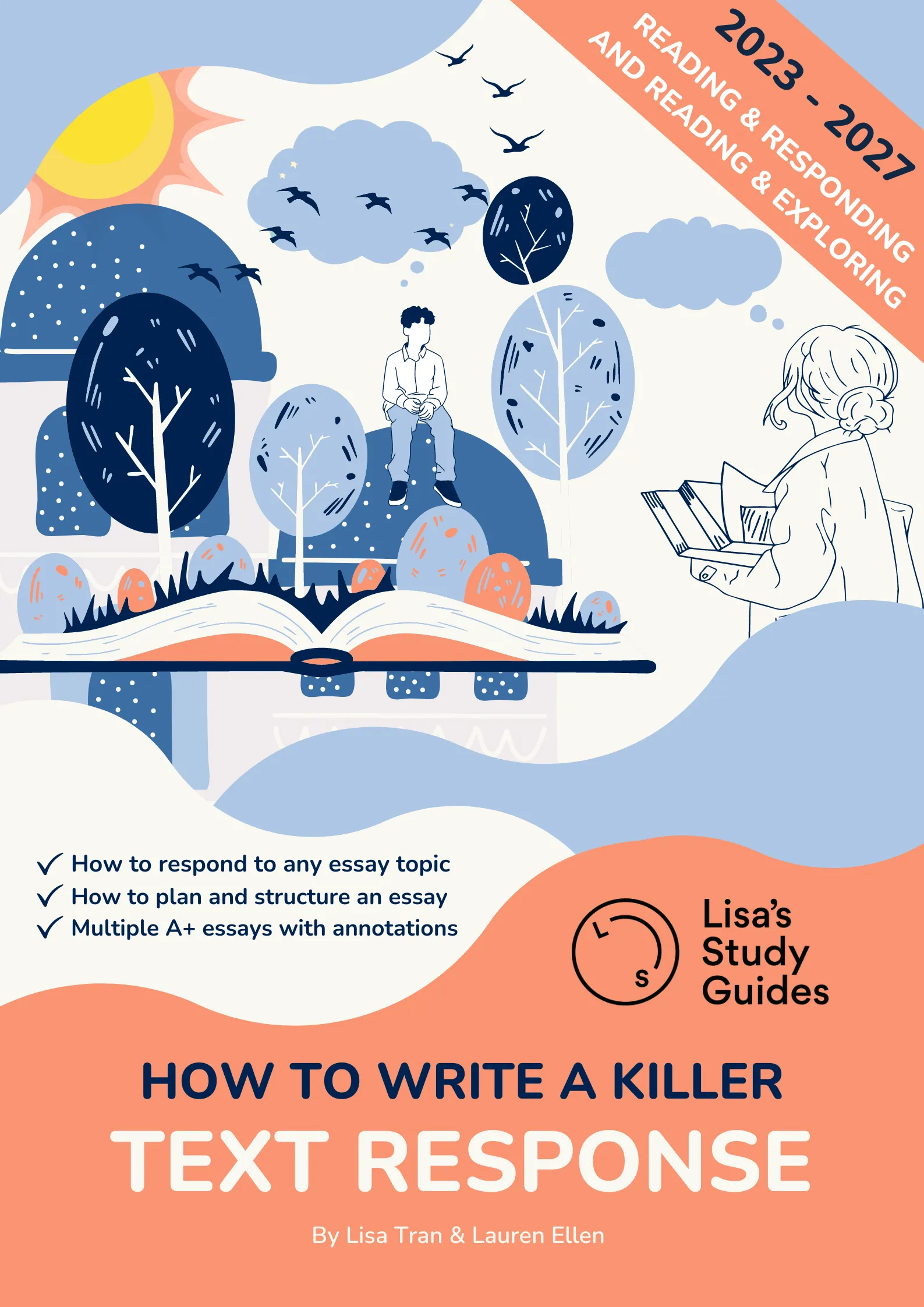

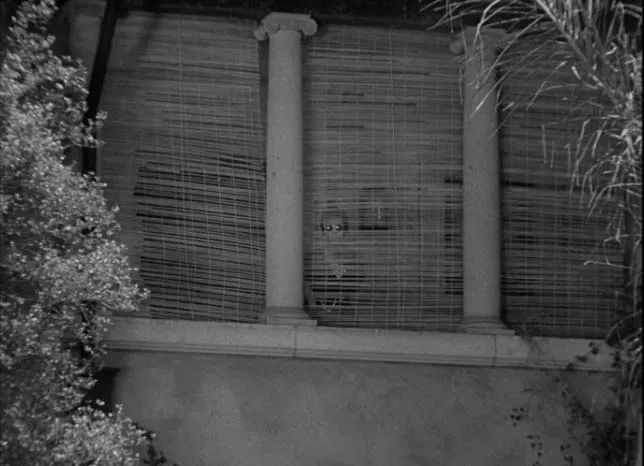

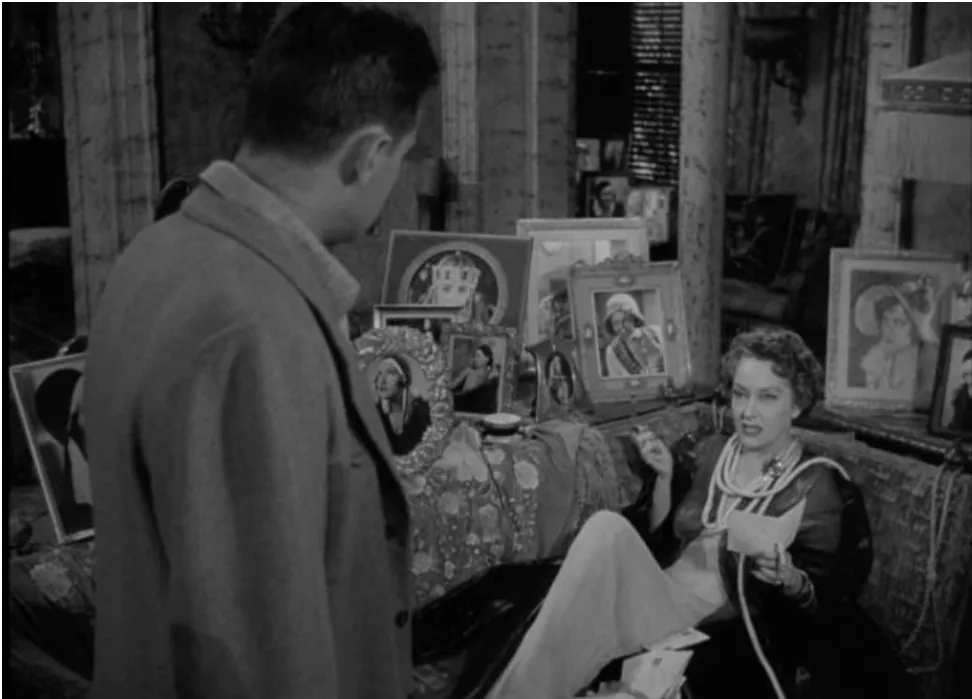
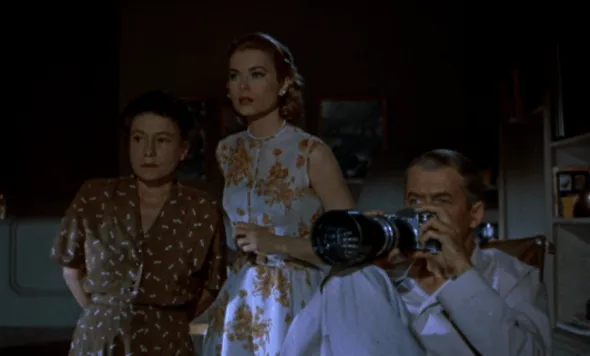
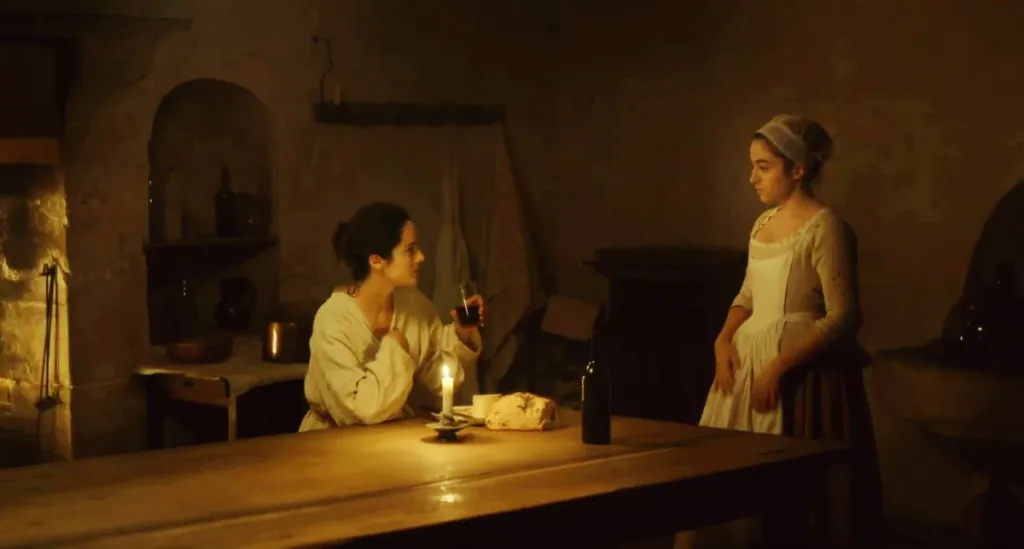















.jpg)